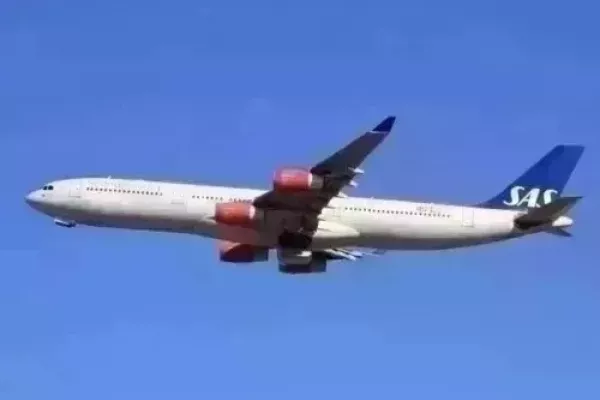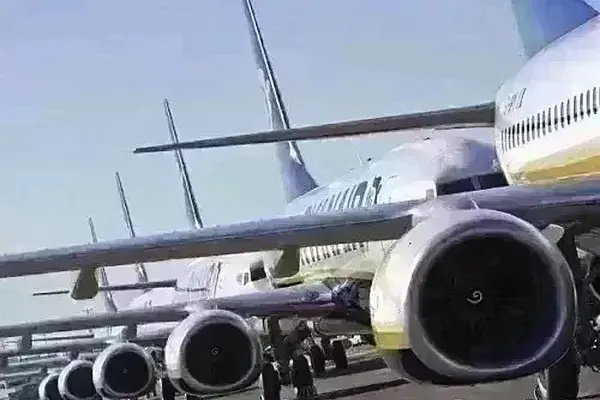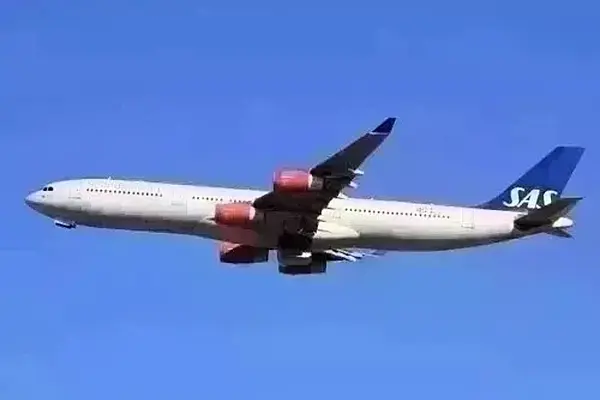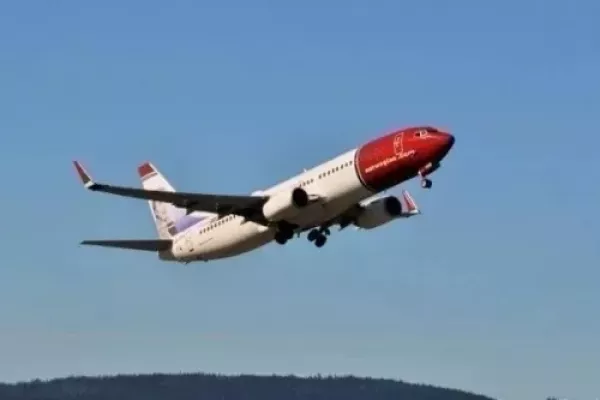Airline SAS SAS.ST headed into the third day of a crippling pilot strike which sent new bookings tumbling and prompted the cancellation of well over half its flights on Wednesday 6 July.
The carrier, whose biggest owners are the Swedish and the Danish states, geared up for the first court date in its bankruptcy proceedings later in the week after it filed for bankruptcy protection in the United States on Tuesday 5 July to help cut debt.
Talks between SAS and pilots over a new collective bargaining agreement collapsed on Monday 4 July, triggering a strike that adds to travel chaos across Europe and sparked heated trading of blame between management and unions in a region long praised for strong labour market models.
There have been no negotiations with the Scandinavian airline since the strike broke out, a spokesperson for the Swedish Pilot Union told Reuters.
"We are in principle still sitting and waiting for them at the table," SAS chief operating officer Simon Pauck Hansen told Reuters.
He said SAS had not been able to agree to a deal yet because the pilots had only met about half of the demands set out in the airline's comprehensive cost-cutting plan, which it says is crucial to its survival.
"We must get the compensation level down so it matches other companies," Hansen said adding that SAS' pilots are about 30% more expensive if you measure what is being paid per day they fly compared to peers at other airlines in Denmark.
The pilots have said they are not asking for increased wages and would accept cuts but won't accept SAS' decision to hire new pilots through two new subsidiaries - Connect and Link - under what unions say are worse terms.
They insist the airline should instead first re-hire 450 former employees dismissed during the pandemic, when almost half of the airline's pilots were let go.
Solidarity
Asked about the fact many say the strike increases the risk SAS won't make it, Swedish SAS pilot Joakim Oberg - who was on the picket line at Arlanda Airport on Monday and Tuesday - said: "We are aware of that but I am prepared to risk my job for this cause. If not I will not have a job anyway down the line."
Oberg, who usually flies from Oslo, said job security and solidarity with colleagues let go during the pandemic were the main reasons he was striking.
SAS has said the strike will cost it $10 million to $13 million per day and the company's ticket sales for future flights will also take a hit.
"The (booking) activity is very low and that is very harmful for the company," SAS' Hansen said.
Data from flight tracking website FlightAware showed 196 SAS flights grounded on Wednesday, a cancellation rate of 63%. The airline has said the strike will affect about half its flights on a daily basis.
At Stockholm's Arlanda Airport, normally buzzing with SAS flights, ground-handling staff were doing their best to cope with the situation, said Martin Johansson, chairman of the local branch of the white-collar Unionen labour union.
"They are worried," he said. "Ground handling are the ones taking the first hit - we are always the first ones that the travellers meet here."
"There is little they can do but to send people home."
The airline has said the move to seek bankruptcy protection was aimed at accelerating a restructuring plan announced in February. The first hearing in the proceedings had been scheduled for Thursday in New York city, a court filing showed.
SAS Pilot Strike Grounds Flights, Exacerbating Airline's Troubles
The above news was followed by news that hundreds of SAS SAS.ST flights were cancelled on Thursday 7 July as the airline wrestled with a strike by pilots at its main SAS Scandinavia arm, overshadowing a traffic surge during June.
Talks between the airline and pilots over a new collective bargaining agreement collapsed on Monday 4 July, prompting a strike which adds to travel chaos in Europe and deepens the financial crisis at SAS, which estimated it would ground half its flights.
The troubled airline, whose biggest owners are the Swedish and the Danish states, filed for Chapter 11 bankruptcy protection in the United States on Tuesday 5 July. The first hearing was due to begin at 1400 GMT in New York with SAS expecting the process to take between nine and 12 months.
Tuesday 5 July's traffic figures highlighted what SAS was now missing in the peak summer period, with the airline flying 1.9 passengers in June, a 220% increase on the year.
Data from flight tracker FlightAware showed 202 flights, 66% of the airline's daily total, were cancelled on Thursday.
The Swedish pilots union said that the pilot associations had proposed making an exception for several weeks to SAS in order to repatriate stranded charter passengers.
Charter companies have warned thousands of people could be stranded unless a solution for their return flights, which were due to be operated by SAS, could be reached.
"Some of our destinations are inaccessible and lack other options for travelers to get home," the union said in a statement, adding that it was extending "a helping hand".
SAS did not immediately reply to a request for comment.
"Completely Crazy"
The airline's stock has lost more than a quarter of its value since the strike began and has tumbled more than 60% since the start of the year as the Ukraine conflict disrupted Asian routes and the threat of strike action clouded the outlook.
Shares in SAS, which has struggled with a high cost base relative to low-fare rivals, were down 4.1% at 1023 GMT on Thursday 7 July.
SAS has said the strike will cost it $10 million to $13 million per day and accelerated its decision to seek bankruptcy protection, which it said will help it accelerate restructuring plans, including deep cost cuts, announced in February.
The striking pilots have said they would consider pay cuts, but cannot accept SAS hiring new pilots through two new subsidiaries, under what unions say are worse terms.
Talks, which ended on Monday, have yet to restart, although unions said they had offered concessions.
"They should come back, it's completely crazy," Keld Baekkelund, chief negotiator for the Dansk Metal union, said, adding: "It almost costs more to strike (for) one day than what divided us."
News by Reuters, edited by Hospitality Ireland. Click subscribe to sign up for the Hospitality Ireland print edition.









